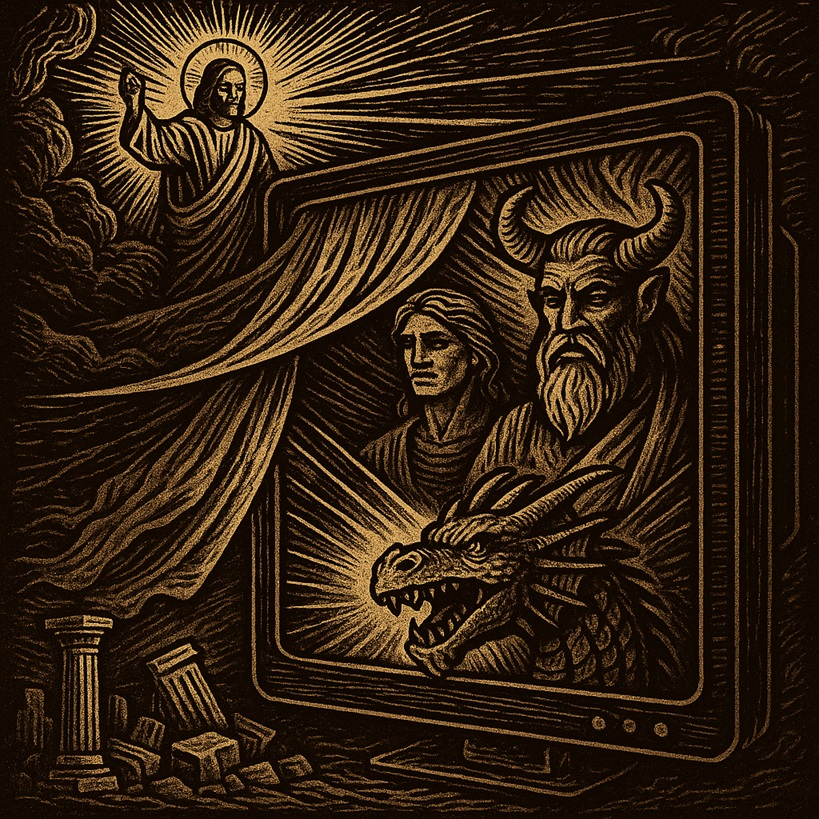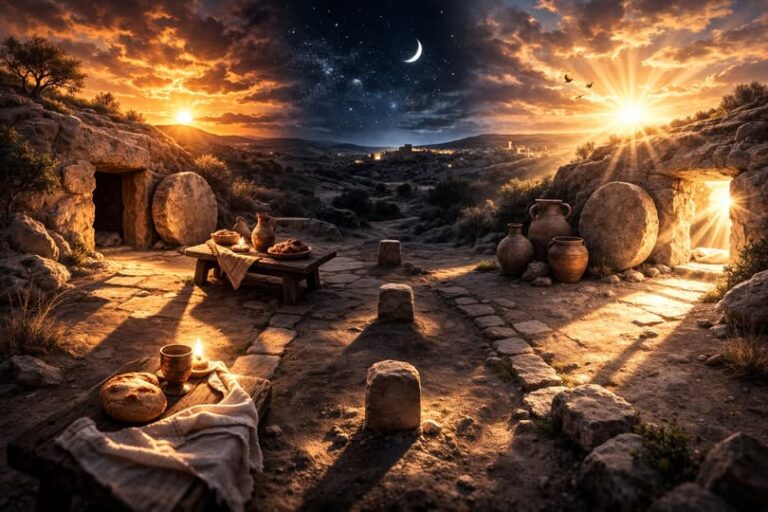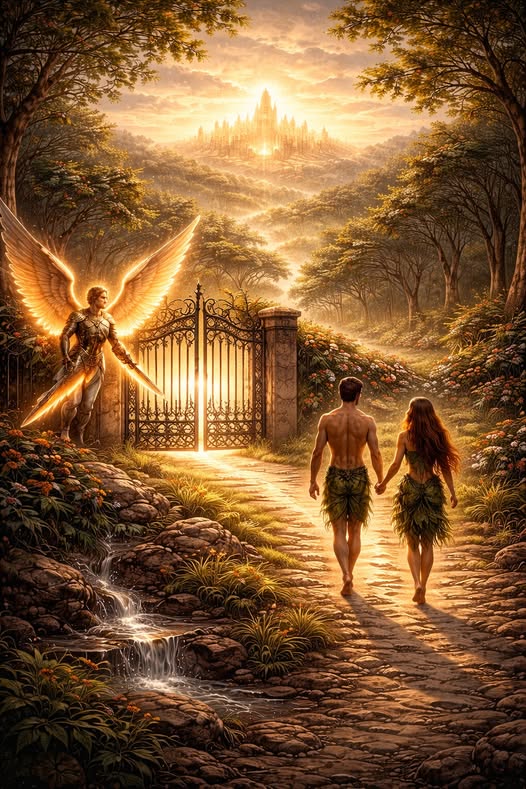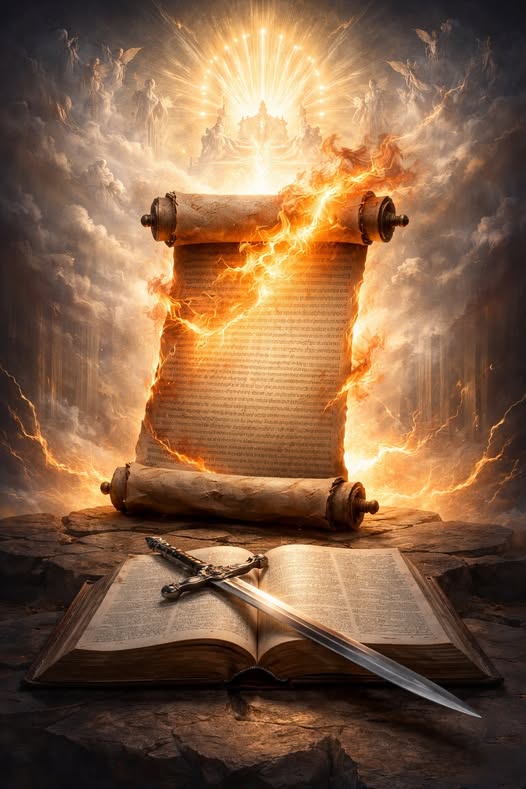
From Genesis to Revelation, the Bible engages with a world alive with spiritual beings, cosmic conflict, and divine rebellion. It is not a book that strips away mystery. Rather, it takes the spiritual realities known to the ancient world and places them into proper relationship with the Most High, Yahweh. The Bible repeatedly acknowledges gods, dragons, giants, and spirits, but it never glorifies them. It shows them as subordinate, corrupted, and ultimately doomed when they stand against the Creator.
In contrast, the modern world, despite its claims of secularism, is reawakening to the supernatural. But it is not returning to Yahweh. Through media, entertainment, and pop culture, it is re-enchanting itself with the very beings that Scripture declared defeated. This shift is not accidental. Modern storytelling has become a reverse polemic, one that subtly restores the honor of the rebel gods, exalts the Nephilim, and recasts dragons and chaos monsters as noble or even heroic. What the Bible puts under Yahweh’s feet, modern media sets on a pedestal.
The Bible Doesn’t Deny the Supernatural — It Reorders It
Ancient cultures across the Near East told stories of divine-human hybrids, monstrous beasts, and a realm of gods who ruled over various aspects of creation. The Bible does not deny these elements. It affirms them, but it corrects the narrative. It does not reduce the supernatural to myth or metaphor. It acknowledges its reality, but subordinates it to Yahweh’s authority.
Genesis 6 confronts the common theme of divine beings mating with humans. In other traditions, the resulting figures were considered demigods, founders of empires or bearers of hidden knowledge. The Bible confirms the existence of these offspring, the Nephilim, but identifies them as the corrupt spawn of rebellion. They are not saviors or noble titans. They are part of a campaign to pollute humanity and provoke judgment.
Likewise, creatures like Leviathan and Rahab are not literary devices. They are real cosmic agents of chaos, portrayed as being under Yahweh’s dominion. In Psalm 74, Yahweh splits the heads of Leviathan. In Job 41, Leviathan is described as terrifying and untamable by man, but utterly known to God. In Isaiah 27, Yahweh promises to destroy Leviathan completely. These beasts existed in the mythologies of Egypt, Babylon, and Canaan, but the Bible does not dismiss them. It shows who truly reigns over them.
Even the other gods, the elohim to whom the nations were handed over in Deuteronomy 32:8–9, are not imaginary. They are real spiritual entities. Psalm 82 portrays them as corrupt, unjust rulers who will die like mortals under Yahweh’s judgment. The Bible acknowledges their power but makes clear it is derivative, temporary, and under ultimate authority. There is no flattery in Scripture for these divine beings, only warning. The biblical worldview is thus not anti-mystical. It is hierarchical. It does not erase spiritual powers; it ranks them.
The Rise of the Reverse Polemic
Modern media has become the primary storyteller of the age. Yet rather than echo the biblical ordering of the supernatural realm, it has flipped the narrative. The rebellious powers, the giants, the gods, the dragons, are being rehabilitated. The Creator is increasingly silent or absent. What once were seen as threats to life and truth are now depicted as misunderstood, noble, or even divine in their own right.
The Nephilim, perhaps more than any other biblical category, have been reimagined with near-complete inversion. The clearest example of this is found in the Percy Jackson series. Here, demigods, the children of the Olympian gods and mortals, are the protagonists, protectors, and saviors. These hybrids are not seen as abominations or violations of heavenly boundaries. They are gifted, chosen, and often destined to become heroes. The entire structure of the story leans into the ancient pagan idea that the merging of the divine and human produces greatness. The biblical framing, where such unions are described as rebellion, corruption, and a trigger for divine judgment, is completely absent. What was once condemned is now celebrated.
This same impulse appears elsewhere. In games like God of War, the protagonist is a son of Zeus. In shows like The Witcher, children of prophecy and mixed heritage often carry hidden power or divine bloodlines. What unites these stories is not just their mythic setting, but their moral reversal. They glorify what Scripture identifies as transgressive.
Dragons, long associated with chaos and death, have also been rehabilitated. In Game of Thrones, How to Train Your Dragon, and House of the Dragon, they are bonded with humans and portrayed as powerful symbols of emotional connection or political legacy. The biblical portrayal of the dragon as a symbol of Satan in Revelation 12 is nowhere to be found. Instead, dragons are noble, beautiful, and misunderstood.
The gods of Egypt, Greece, and Norse mythology have returned as well, not in temples, but in comic books and theaters. Marvel’s Thor transforms Norse gods into charismatic adventurers. American Gods suggests that all deities are real if someone believes in them. Moon Knight centers on Egyptian gods still pulling strings in the modern world. These are not portrayed as rebellious powers under judgment, but as fascinating, powerful entities caught in moral ambiguity.
This is not mere fantasy. It is a spiritual reframing. The narrative is clear: the old gods were never false, only forgotten, and they deserve a second hearing.
Inverting the Biblical Story
More than restoring ancient beings to honor, modern media increasingly rewrites the biblical narrative itself. The villain is no longer the dragon. It is the God who slays it.
In His Dark Materials, “The Authority,” a stand-in for God, is a decrepit tyrant whose death is liberation. In Supernatural, God is portrayed as absent, manipulative, or even antagonistic, while demons and monsters are humanized. In Lucifer, the devil is charming, philosophical, and unjustly punished. Eden becomes a place of oppression. The Fall becomes a quest for freedom. The Serpent is no longer a deceiver, but a guide.
These retellings are not random. They carry theological weight. They preach a gospel of inversion, where rebellion is virtue and divine judgment is cruelty. They echo Gnostic ideas that the true enemy is the Creator, and salvation lies in escaping His dominion. What began in Eden, the question of whether God can be trusted, is now retold on every streaming platform. This is myth-making with a purpose. And that purpose is to glorify the very beings the Bible says will be cast down.
The Deliberate Absence or Mockery of Christ
Perhaps the most revealing element of modern spiritual storytelling is who gets excluded. While gods from nearly every ancient pantheon make appearances in books, films, and television, Jesus Christ is either conspicuously absent or deeply distorted.
In a world filled with gods, monsters, and supernatural forces, one would expect the central figure of world history, the risen Son of God, to appear frequently. Yet when Christ is portrayed at all, it is rarely in truth. He is not the glorified King of Revelation, riding in judgment with the armies of heaven. He is not the divine Son whom demons fear and who calms the storm by His word. Instead, He is usually reduced to a soft-spoken wanderer, a sandal-wearing teacher who preaches vague morality and emotional comfort.
This version of Jesus is not the Lion of Judah. It is a caricature. And that caricature exists so that the real Christ does not have to be reckoned with.
The world can tolerate many gods, as long as none of them claim to be the way, the truth, and the life. And so Christ is either made into a harmless symbol or removed entirely. His true authority is unwelcome in a narrative where rebellion is heroic and gods are interchangeable. In that silence, the story makes space for every other power to rise.
Why This Matters
Some may say these are just stories. But Scripture teaches that imagination is not neutral. What we admire, we emulate. What we retell, we rehearse. The stories we love shape the way we see the world, including the unseen world.
The revival of paganism in pop culture has spiritual consequences. It conditions a generation to see spiritual rebellion not as a danger but as a form of self-discovery. It trains hearts to sympathize with the fallen, to root for the dragon, to look away when demons smile. It dulls discernment and reframes the ancient enemies of God as heroes of the people.
The result is not just spiritual confusion. It is a re-invitation of the old gods, the very ones the Bible says were judged, defeated, and destined for destruction.
Conclusion
This is not a call to abandon all media. It is a call to open our eyes to the narrative beneath the narrative. Christians must not be passive consumers of story. We must be interpreters, and creators.
The world does not need sanitized fiction. It needs stories that tell the truth about the unseen realm. It needs dragons that are terrifying, not noble. Gods that are rebels, not allies. It needs heroes who stand with the Creator, not against Him.
The imagination must be reclaimed, not through censorship, but through better storytelling. The Church once understood this. From parables to allegory to epic poetry, Christians have long told stories that revealed the spiritual war behind the veil. It is time to tell them again, and to tell them well.
Discussion Questions
- How does the biblical treatment of giants, dragons, and pagan gods differ from their modern portrayals?
- What are some examples of media that romanticize rebellion against God or elevate spiritual adversaries?
- Why do you think Jesus Christ is often excluded or misrepresented in spiritual narratives today?
- How can Christians cultivate discernment when engaging with fantasy or mythic storytelling?
- What would it look like to reclaim the imagination in service of truth?
Want to Know More?
- The Unseen Realm – Michael S. Heiser
A foundational work exploring the biblical supernatural worldview, including the divine council, rebellious elohim, and the proper place of spiritual beings beneath Yahweh’s rule. Essential to understanding the biblical framework being inverted in modern media. - Demons: What the Bible Really Says About the Powers of Darkness – Michael S. Heiser
Explores the origin of demons as the disembodied spirits of the Nephilim, connecting Second Temple tradition with Scripture. It clarifies why the biblical narrative treats these beings as threats, not as heroes. - Against the Gods: The Polemical Theology of the Old Testament – John D. Currid
A detailed study of how the Old Testament intentionally confronted and overturned the surrounding pagan mythologies, showing that the Bible was not written in isolation but as a rebuttal to rival claims. - The Great Inception – Derek P. Gilbert
Draws connections between biblical events and ancient pagan myths, highlighting how the biblical authors challenged those who claimed divine power apart from Yahweh. Engaging and rooted in biblical theology. - Reversing Hermon – Michael S. Heiser
Focuses on the impact of the sin of the Watchers from 1 Enoch on the biblical worldview, and how Jesus’s ministry was a deliberate confrontation with the legacy of that rebellion. Directly supports the article’s thesis on reversing supernatural corruption.




